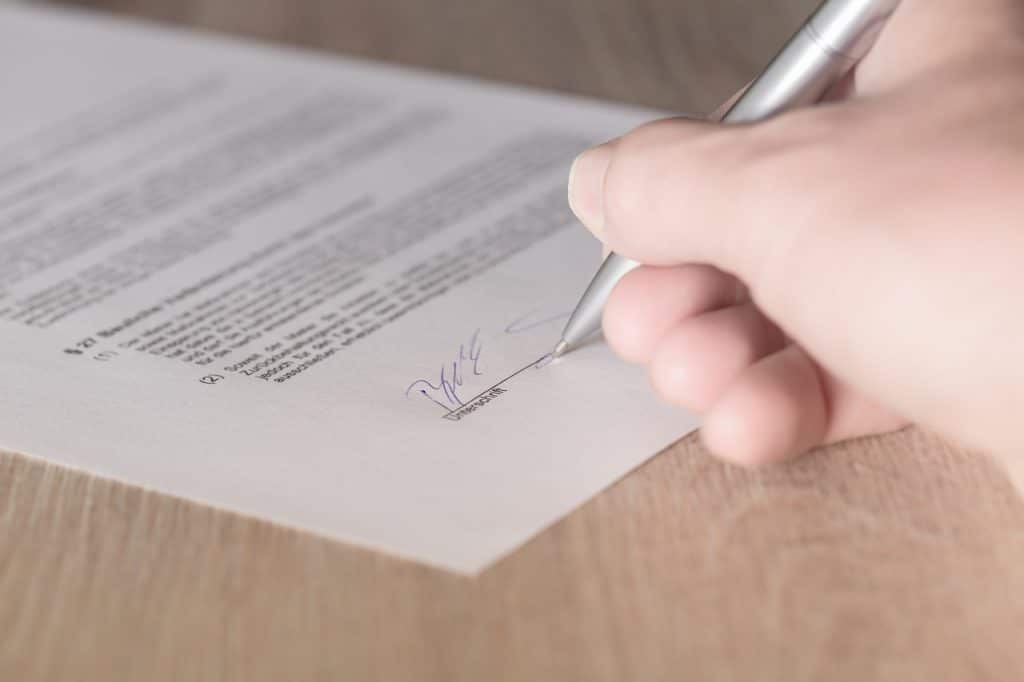
As a first-time landlord or one with little experience, you may be unfamiliar with various lease protect options that can safeguard your interests. One such option is property clauses that should be part of every leasing process. Whenever a renter shows interest in your property, you must shield your investment against potential risks and liabilities with a lease agreement.
Thank you for reading this post, don't forget to subscribe!Integral to rental agreements, lease clauses define landlords' and tenants' rights and responsibilities. Familiarizing yourself with vital clauses can mitigate risks and create a mutually beneficial landlord-tenant relationship.
Below, we have identified critical rules and lease clauses that you must know to safeguard your interests. By understanding these clauses, you can ensure legal compliance, improve respect, and foster successful tenancies.
Keep in mind that this guide only provides general information and should not be used in place of legal counsel. Consulting with a qualified attorney or legal professional is recommended to tailor lease clauses to particular state legislation.
What is A Property Clause?
A property clause (or lease clause) refers to a particular section within a contract or rental agreement that outlines specific terms and conditions agreed upon by the landlord and tenant. These clauses must adhere to the applicable local state laws and any other agreements between the parties. By ensuring compliance, the landlord can maintain a legally valid and mutually beneficial arrangement with tenants and reduce real estate operating expenses.
Key Components of a Legally Binding Lease Agreement
Understanding the local state laws before signing any lease document is advisable to ensure the terms are legally valid for all parties involved. In several states, leases must fulfill certain legal requirements, including:
- Description of the type of property.
- Contact information of all parties involved, including each occupant's information.
- Start and end dates of the lease.
- Rent amount, due date, and late fee information.
- Details on penalties and conditions for "holding over."
5 Property Clauses That Landlords Should Know for Lease Protection
When drafting a lease document, it's important to consider including certain clauses that protect both the tenant and landlord. While there may be variations based on location and property type, here are five clauses that should always be considered:

1. Severability Clause
A severability clause is a crucial component of your lease agreement. This clause ensures that if any part of the lease is deemed invalid by a court, the rest of the agreement remains enforceable. By including this clause, you can prevent potential issues and safeguard the validity of your lease agreement. We recommend following Law Insider's example when drafting your severability clause.
Local tenant laws and building codes change every few years. As such, keeping up can be challenging. Staying on top of these changes is essential because what may have been legal in your lease last year may no longer be acceptable or lawful. Failing to catch up with the updates could land you in trouble if your tenant decides to sue you over an outdated clause in the lease agreement.
2. Subleasing Clause
Subleasing refers to a current tenant transferring their lease to another individual. A subleasing clause outlines the steps tenants must follow when seeking to sublease the property. These steps typically involve notifying the landlord and fulfilling certain legal requirements to ensure the validity of the sublease. In some cases, landlords may require tenants to pay a one-time subleasing fee before they authorize leases. Also, the new tenants may have to sign a sublease agreement before they move in.
Subleasing can be a way for tenants to maintain the lease while alleviating rent responsibility, should unforeseen circumstances arise. However, it's important to protect your property by ensuring the new tenant's reliability and understanding of regulations respecting such property.
3. Use of Premises Clause
A use of premises clause clearly outlines the permitted and prohibited uses of the rental property. It may include restrictions on home-based businesses and requirements for obtaining prior approval. Additionally, in writing, it is essential to specify the maximum number of individuals allowed to occupy the property as tenants or dwellers (excluding non-rent-paying children). Including this clause prevents tenants from bringing in unregistered friends or family members, who would not be held liable for rent or damages.
4. Joint and Several Liability Clauses
A rent liability clause establishes the tenants' collective responsibility for paying the full rent amount, even if an individual fails to contribute their share in a given month. This clause is particularly relevant when tenants live with roommates, ensuring that a specific tenant remains accountable for rent and potential damages.

By implementing this clause, if one roommate neglects their portion of the rent, the remaining tenants are still obligated to cover the shortfall for that month. While all tenants should ideally split the rent equally, it is prudent to prioritize receiving the full amount regardless of the circumstances.
5. Pet Protection Clause
This clause ensures you have legal recourse when a tenant's pet causes damages, such as scratching door frames. By establishing clear and reasonable guidelines for pets on your property, you can proactively prevent issues in the future. Tenants can't dispute terms that are explicitly stated in their lease.
The National Association of Realtors estimates that over 70% of renters own pets, making allowances for pets on property increasingly important. It would be imprudent to exclude more than half of the tenant pool by implementing a blanket "no pets" policy. However, it is crucial to incorporate a pet protection/animal agreement clause within the lease agreement.
Building a Successful Landlord Experience Through Valid Lease Agreements
As a landlord, you must provide tenants with a safe and well-maintained living space. That's why understanding what makes a lease agreement valid is vital. While profit is certainly a goal in the rental industry, it should never come at the expense of tenant safety and comfort. Creating lease clauses that comply with relevant laws can benefit you and your tenants and ensure a positive relationship and successful rental experience for all.

Building a positive and respectful relationship can set the tone for a smooth and successful landlord experience. Investing in desirable rental properties is one way to attract reliable tenants who understand the importance of property clauses. The Short Term Shop can help you find top-notch vacation rentals in stunning locations, giving you a strong foundation for your landlord journey.
SEARCH FOR YOUR NEXT INVESTMENT PROPERTY
Comparing Lease Insurance and Security Deposits
Lease insurance is a complete replacement for security deposits, eliminating the need for traditional deposits. Lease insurance offers a streamlined and hassle-free experience, requiring no applications or approvals. High adoption rates exceeding 95% effectively eliminate the administrative burdens and liabilities associated with deposit management and benefits both property managers and renters.
Other Important Lease Details to Keep in Mind
The following aspects should also be considered when drafting a lease agreement. This includes clauses that outline why you need a rental property insurance:
Maintenance: Indicate the landlord's responsibilities and limitations regarding property maintenance and the tenant's procedures for requesting maintenance.
Noise and Disturbances: Reasonable restrictions can be enforced, such as designated quiet hours, a ban on excessively loud music or parties, and other sensible limitations to maintain a peaceful living environment.
Number of Occupants: To prevent excessive strain on resources, disturbances, and wear and tear, it is important to specify limitations on the number of occupants and long-term visitors.
Parking: If parking spaces are limited, the lease should assign a spot to the tenant or outline any restrictions on guest parking in the public domain.
Pets: If pets are allowed, or an additional pet deposit is charged, the lease should explicitly include this information.
Security Deposits: The lease should clearly state the security deposit amount and outline how it may be used to cover necessary repairs, cleaning, or unpaid rent.
Smoking: The lease can prohibit smoking entirely on the property or specify designated smoking areas, depending on your preferences.
Surrender of Premises: Before tenants move out, they should adhere to specific procedures and expectations, such as thorough cleaning, to ensure the return of their security deposit.
Utilities: Clearly define which utilities are included in the rent, such as shared central heating, and specify the party responsible for payment in the case of utilities not covered by the landlord.
If there is any uncertainty regarding the policies included in the lease, seeking advice from a lawyer is recommended to ensure clarity and legal compliance.
Successes and Risks: The Impact of Effective Lease Clauses
Including strategic lease clauses can bring significant benefits such as legal protection, better communication with tenants, and improved leasing processes. Neglecting them can result in disputes, financial setbacks, and strained relationships. Landlords should stay informed and implement valid lease agreements to fulfill their responsibility of providing a safe and well-maintained living space.
Final Thoughts
As a landlord, you are responsible for any property belonging to you. By implementing well-structured property clauses in your lease agreements, you can mitigate risks, uphold legal compliance, and promote a respectful and successful landlord-tenant relationship.
Furthermore, understanding tax implications is a critical aspect of property management. Familiarizing yourself with potential tax deductions for investment property can significantly increase your return on investment and mitigate your tax liability. These deductions could include mortgage interest, property tax, operating expenses, depreciation, and repairs.
Remember, while this guide provides an overview, seeking professional legal counsel is crucial to tailoring lease clauses to your specific circumstances and state legislation. For expert advice on successful real estate investing and guidance on finding the best investment properties, reach out to the Short Term Shop.
